/Données observées/Campagnes
Type of resources
Available actions
INSPIRE themes
Provided by
Update frequencies
status
-
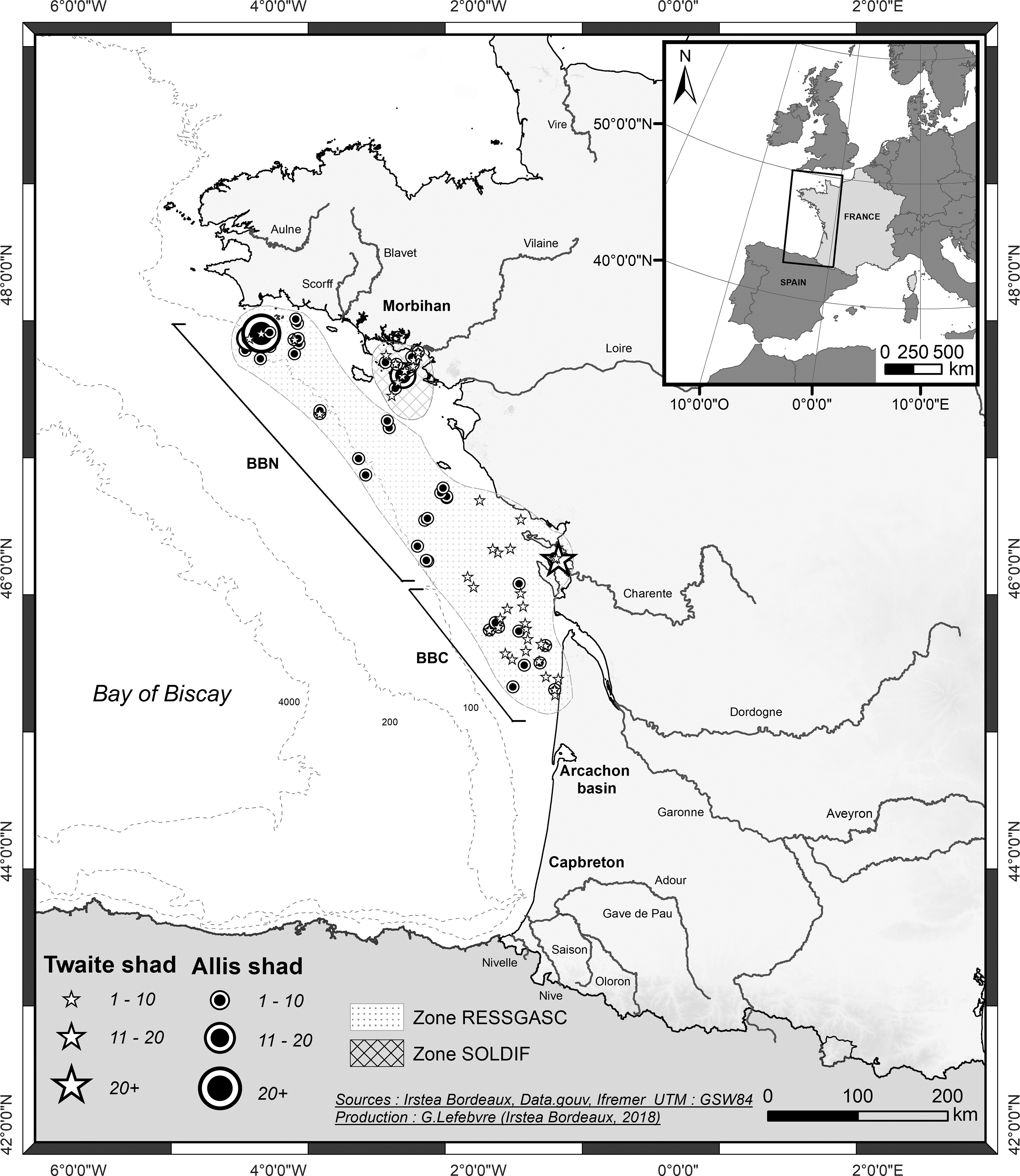
The 62 RESSGASC campaigns allow the quarterly assessment of the quantities of various species (hake, sole, Norway lobster, etc.) discarded by fishing vessels (individuals below legal landing size). This information, together with data collected from the demographic structure of landings (using samples from auctions), is essential for the evolution of commercial fish stocks.
-
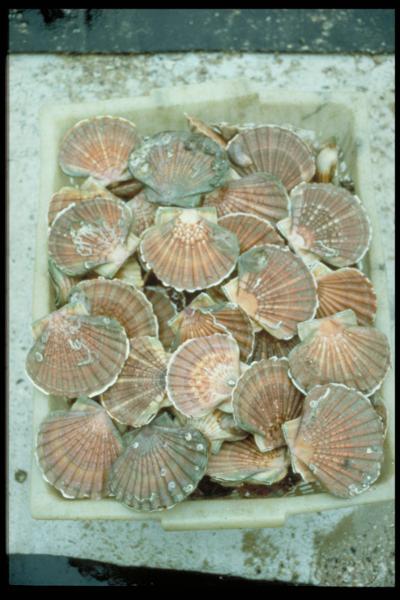
The aim of these cruises, which took place on the Thalia, was to evaluate the abundance of the scallop stock in the Charentais channels.
-

Since 2001, an annual stock assessment of Manila (Ruditapes philippinarum) and European (Ruditapes decussatus) clams has been carried out in March in the Gulf of Morbihan and the Noyalo River. The objectives of this survey are : 1) estimate by direct assessment, the biomass of the stock and its geographical distribution; 2) estimate the exploitable biomass and exploitation potential for the sampled sites in particular, in areas reserved for professional fishing; 3) to establish a diagnosis, with a medium-term vision, on the state of the stock; 4) to propose the implementation of appropriate management measures. Two cruises were also carried out in 1996 and 1997.
-
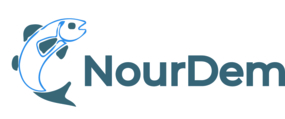
The NourDem project aims to carry out annual trawling cruises in the three estuaries of the Seine, the Loire and the Gironde.
-

The Bargip project : acquisition of scientific data and knowledge to produce advices on integrated management of European sea bass (Dicentrarchus labrax) in North-East Atlantic.
-
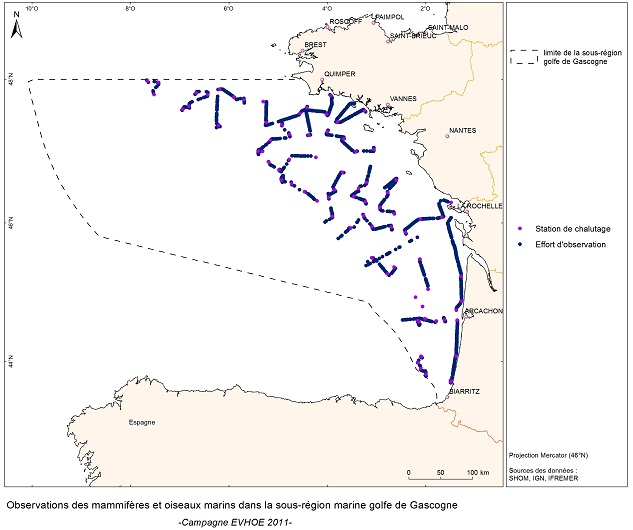
EVRWE is a multiannual survey with the following objectives: - Building up time series of abundance indices for the main dermersal and benthic species in the Celtic Sea and the Bay of Biscay. - Measuring inter-annual changes in their recruitment. - Mapping the spatial distributions of the species and their inter-annual variations, as well as looking for the origin of this variability (biotic and/or abiotic parameters, fisheries impact). - In the framework of the 'Bay of Biscay' challenge, the data collected are vital for understanding changes in faunal communities.
-
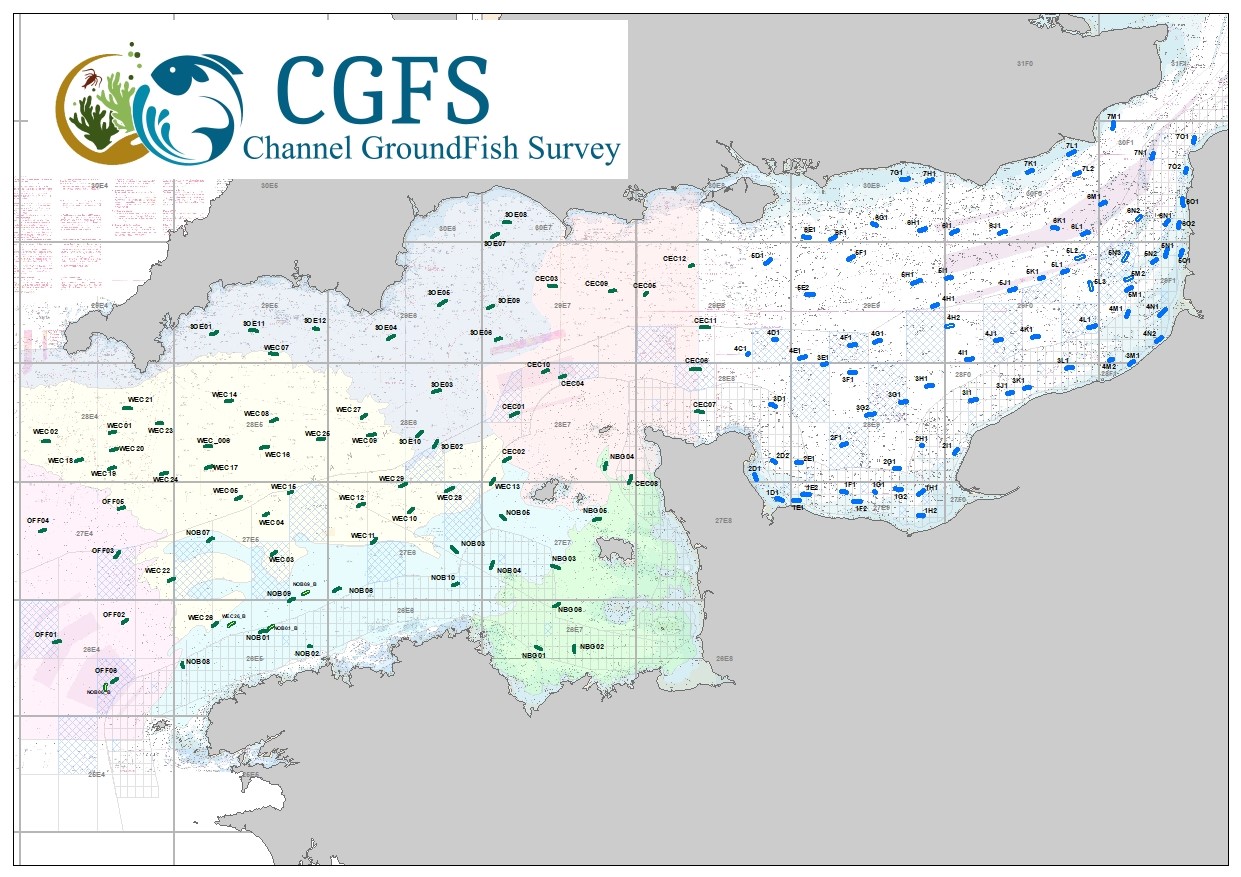
CGFS cruise aims to collect basic data to estimate the status of fisheries resources, by direct assessment of stock abundance and distribution, along with biological sampling of commercial catches. The CGFS campaign is carried out within the framework of this programme in the European project Contractualisation of Basic Fishery Data Collection (DCF). The abundance indices collected during this campaign are used by the ICES international working group "Demersal fisheries of the North Sea, Eastern Channel and Skagerrak" and complement the data from the English "Beam Trawl Survey" for the "Flatfish" working group.
-
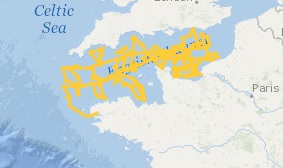
To draw up an inventory of the "Western Channel" ecosystem by collecting complete data covering a maximum of compartments of this system (hydrology, planktonic compartments including fish eggs and larvae, benthic invertebrates, pelagic, demersal and benthic fish and cephalopods, birds and marine mammals). To determine the impact of climate change in the Channel on the composition of benthic invertebrate assemblages, the integrator group of these changes, through sampling of particular stations for which historical data exist. Carry out an intercalibration with the N/O Gwen Drez so that the CGFS (Channel Ground Fish Survey) data set can be continued on another vessel in the coming years.
-
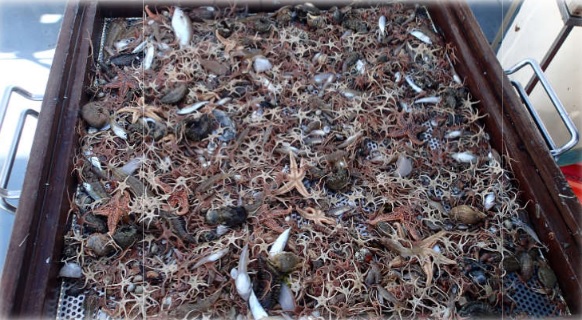
Ecological study of coastal nurseries in the Bay of Biscay: abundance and the quality of benthic and demersal fish juveniles (targeted species: common sole, Solea solea L.), biological indicators, relationship with the physical parameters of the habitats (bathymetry, sediments, hydrology) and with associated epibenthic populations (trawls for observing invertebrates).
-
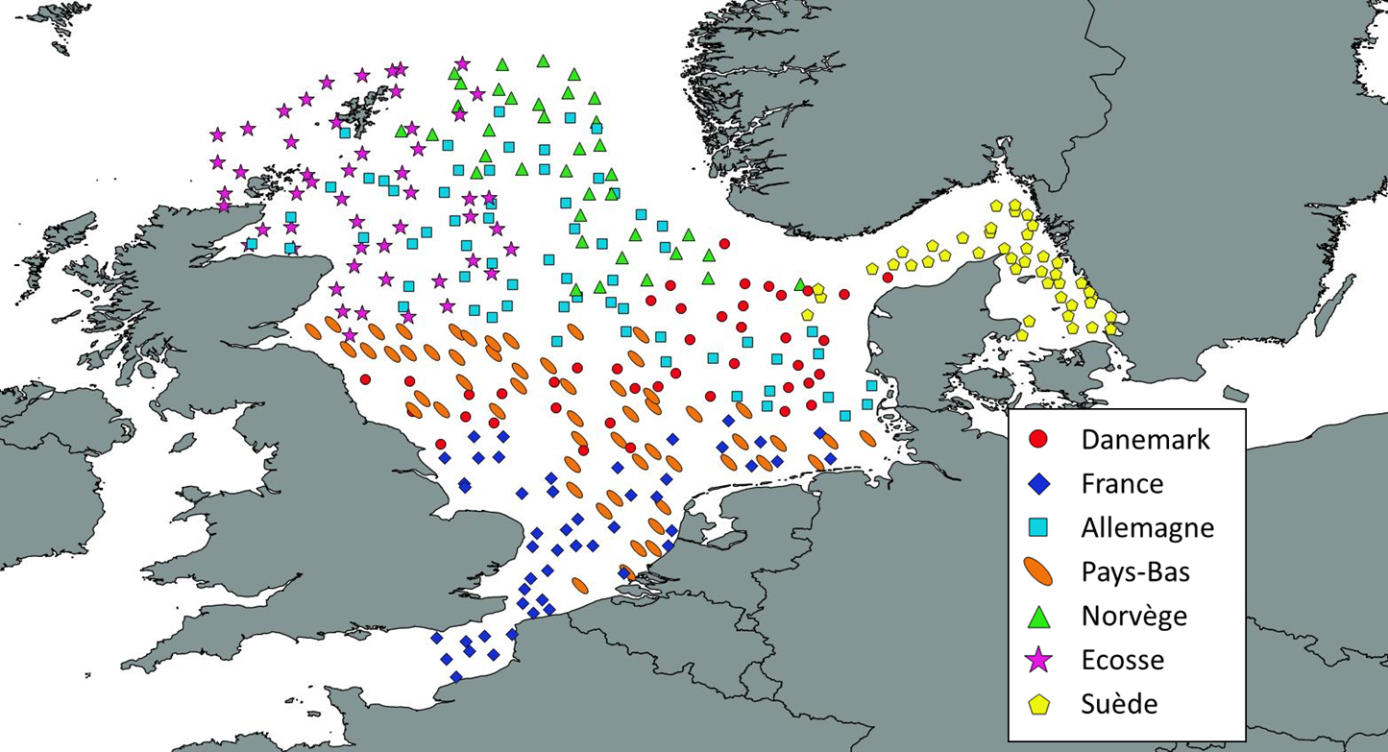
Like all EU Member States, France is obliged to collect and manage the data necessary to conduct the Common Fisheries Policy to assess the abundance and distribution of stocks. A "national multi-annual basic data collection programme" has therefore been set up in which scientific campaigns such as IBTS are integrated. This campaign is carried out in coordination with most of the countries bordering the North Sea, in the framework of the European Fisheries Data Collection Programme (DC-MAP). The research carried out over the last few decades has led to a shift away from fisheries issues stricto sensu (monospecific and geographically limited studies) towards a more integrated vision of the various components of marine ecosystems. This openness results from a desire to better understand the dynamics of exploited marine resources in order to improve diagnoses and management recommendations. The acquisition of data from these compartments at different stations makes it possible to establish a map of biotic and abiotic environmental parameters in the Channel and North Sea during the winter period, a period that is usually little studied, but which is crucial.
 Mon GéoSource
Mon GéoSource